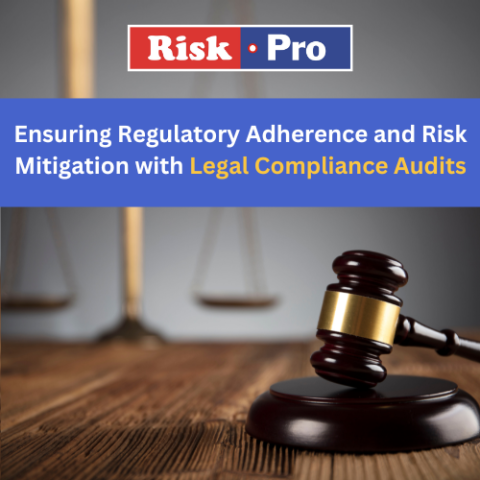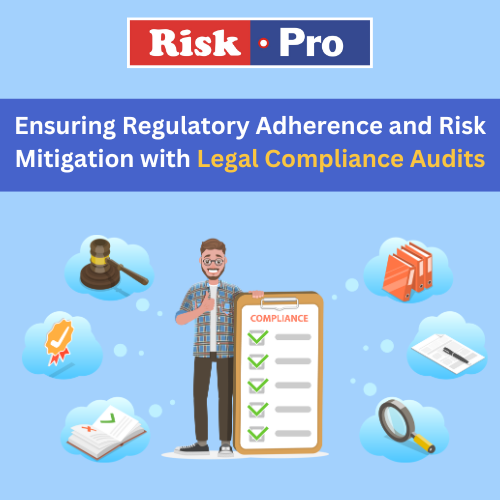
In today's complex business environment, organizations are subject to numerous laws, regulations, and industry-specific requirements. Failing to comply with these legal obligations can lead to severe consequences, including financial penalties, legal disputes, and reputational damage. To mitigate these risks and ensure regulatory adherence, organizations conduct legal compliance audits. In this blog post, we will explore the importance of legal compliance audits and how they help organizations maintain a robust and compliant operational framework.
Understanding Legal Compliance Audits:
Legal compliance audits are systematic assessments conducted by organizations to evaluate their adherence to applicable laws, regulations, and internal policies. These audits ensure that the organization's activities, processes, and practices align with legal requirements and industry standards. By identifying areas of non-compliance, legal compliance audits enable organizations to take corrective actions and minimize legal and operational risks.
The Benefits of Legal Compliance Audits:
Legal compliance audits offer numerous advantages for organizations:
a. Risk Mitigation: By proactively assessing compliance with legal and regulatory requirements, organizations can identify potential risks and take corrective measures to mitigate them. This reduces the likelihood of legal disputes, penalties, and reputational damage.
b. Enhanced Operational Efficiency: Compliance audits help organizations identify inefficiencies and gaps in processes, allowing for improvements that streamline operations and minimize compliance risks.
c. Regulatory Adherence: Legal compliance audits ensure that organizations meet their obligations under relevant laws and regulations, reducing the risk of non-compliance penalties and sanctions.
d. Reputation Management: Demonstrating a commitment to legal compliance enhances an organization's reputation among stakeholders, including customers, investors, and business partners. It instills trust and confidence in the organization's ethical practices.
e. Improved Internal Controls: Compliance audits evaluate the effectiveness of internal controls and identify areas where controls can be strengthened or enhanced. This leads to a more robust control environment, reducing the risk of fraud and errors.
Key Elements of Legal Compliance Audits:
a. Regulatory Mapping: Identify and understand the specific laws, regulations, and industry standards that apply to the organization's operations. This involves conducting comprehensive research and staying updated on changes in legal requirements.
b. Compliance Assessment: Evaluate the organization's policies, procedures, and practices to determine their alignment with applicable laws and regulations. This includes reviewing documentation, interviewing key personnel, and examining relevant records.
c. Gap Analysis: Identify areas of non-compliance or weaknesses in the organization's compliance framework. This helps prioritize corrective actions and allocate resources effectively.
d. Remediation Planning: Develop an action plan to address identified gaps and deficiencies. This may involve revising policies and procedures, providing additional training to employees, or implementing new controls.
e. Ongoing Monitoring: Establish mechanisms for continuous monitoring of legal compliance. Regular reviews, internal audits, and reporting mechanisms help ensure ongoing adherence to legal requirements.

Implementing Legal Compliance Audits:
a. Stakeholder Engagement: Involve key stakeholders, including legal counsel, compliance officers, and relevant business units, in the audit process. Their input and expertise contribute to the effectiveness and accuracy of the audit.
b. Documentation and Record-Keeping: Maintain thorough documentation of the audit process, including findings, remediation plans, and evidence of compliance. Proper record-keeping demonstrates due diligence and supports the organization in case of legal inquiries or disputes.
c. Compliance Training and Awareness: Provide comprehensive training to employees on legal obligations and the organization's compliance policies and procedures. This helps foster a culture of compliance and increases awareness of legal requirements.
d. Technology Adoption: Leverage compliance management software and technology tools to streamline the audit process, track compliance activities, and facilitate reporting and documentation.
Legal compliance audits are critical for organizations to ensure adherence to applicable laws, regulations, and industry standards. To know more contact us at info@riskpro.in
